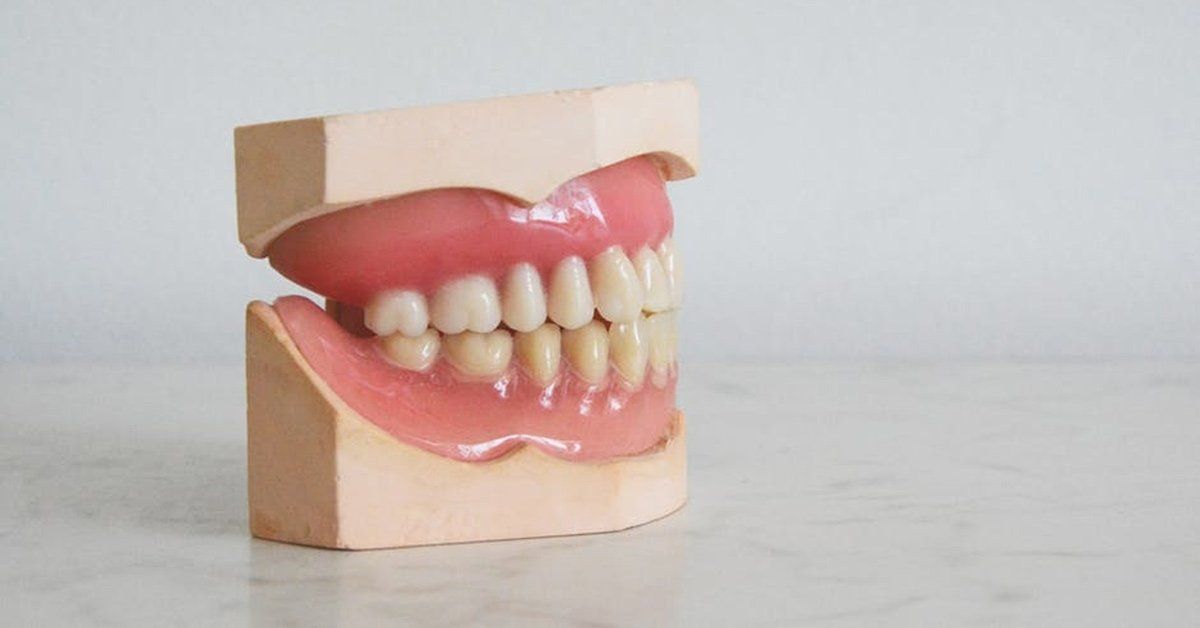Partial and Complete Dentures: What You Need to Know
Missing teeth is an easy fix with partial or complete dentures! Consult with your dentist today to see which one is right for you so you can regain that smile!
Are dentures the solution to get your smile back? For many, missing teeth are a source of stress and insecurity, as well as potential pain, trouble chewing, and other long-lasting effects. Read on to see if you're a candidate for repairing your smile and if complete partial dentures are right for you.
What are Dentures?
Dentures are custom-fitted removable teeth that can replace missing teeth. There are several consequences to not replacing missing teeth, including bone loss, shifting teeth, trouble chewing, speech issues, and other difficulties.
Depending on your situation, you may need complete or partial dentures.
Complete and Partial Dentures
Complete dentures are needed when all of the teeth are missing. They are customized to each patient using molds made in-office from the patient's gums.
Patients being fitted for a complete set must first have all of their teeth removed. The dentures can be "conventional," which are placed after the gums have begun to heal, about 12 weeks, or "immediate," which are ready as soon as the teeth are removed but require frequent adjusting as the gums heal.
Immediate dentures are usually a temporary solution until the conventional set is ready.
Partial dentures are used when one or more natural teeth still remain. They can fill the space between natural teeth and prevent shifting. They are also custom fitted from molds and usually secured to the remaining natural teeth to stay in place.
Partial dentures are a great option if the patient wants to keep all remaining teeth intact and just fill in the teeth that are missing.
Both complete and partial options are part of our goal at
Garland K. Davis, DDS to provide patients with
restorative dentistry that helps them look and feel their best.
Should You Get Dentures?
Dentures may be a good option for you if you're experiencing one of the following ailments:
1. Gum disease
If you are experiencing gingivitis past the point of dental intervention, your teeth will begin to fall out, and you may encounter bone loss. Removing the teeth will give your gums time to heal, and they can be replaced with a set of dentures so that you can keep your smile.
2. Decaying teeth
Broken teeth can begin to rot and cause extreme pain, in which case it may be best to extract the teeth and replace them with a partial set.
3. Missing teeth
While dental implants are a more natural replacement for missing teeth, they can be expensive. Dentures are a great affordable alternative or temporary solution while your gums heal before installing implants.
4. Insecurity
If your teeth leave you feeling self-conscious and insecure about your appearance, dentures are a great way to get your smile back. A repaired smile will help you feel more confident, which will benefit your social life, career, and overall happiness.
How to Get Fitted
Once you and your dentist have decided that dentures are right for you, there are a few steps to get them fitted. The process can take several weeks, but it's important to make sure your dentures are perfect.
First, your dentist will determine if you need a complete or partial set and then will take several impressions and measurements of your jaw.
Next, wax forms or molds will be created of your potential dentures for you to try on. Any needed adjustments will be made until they are perfectly customized for your smile. You may have multiple "try on" sessions, which includes evaluating the fit, color, and shape before the mold is right.
Finally, when the mold is correct, your dentures will be cast. Adjustments can still be made if needed, but soon you will be going home with your new smile.
Getting Used to New Dentures
It may take a few weeks to adjust to your new smile, both mentally and physically. The muscles in your cheeks and tongue will need to learn to keep them in place, which will occur over time. However, it's normal for them to feel odd and out of place in the beginning.
Slight irritation is also normal as your mouth adjusts to wearing them. It will take time to learn how to properly insert and remove them, but with practice you will soon have no problems.
If you experience any difficulty eating in the beginning, stick to soft foods that don't require too much chewing for the first few weeks. You should also try cutting your food into small pieces in the beginning and eating slowly.
Eventually, you'll be able to add normal foods back into your diet, but it's important to avoid food that's too sticky or hard. Do not chew gum or bite down on bones with your dentures.
It can also take time to adjust to your new appearance. Seeing your new smile in the mirror may be different at first, but with a little time, you will start to look and feel like yourself again.
If you're having other issues, try these troubleshooting methods.
Be patient, and most issues will resolve themselves over time. However, if problems persist, do not hesitate to
contact our office so that we can make any necessary changes.
Bring Back Your Smile at Garland K. Davis, DDS
At Garland K. Davis, DDS Family Dentistry, we don't want anything getting in the way of your smile. We prioritize your oral health and do everything we can to help you feel your best.
We offer both partial and complete denture services in Laurel, MD.
You can start with a virtual appointment to go over all of your options. Contact our office to make an appointment to discuss dentures today and get your smile back.



